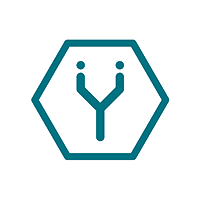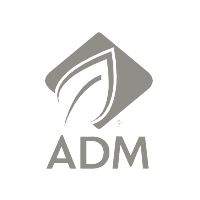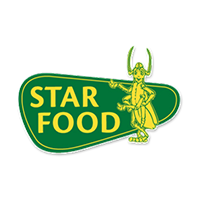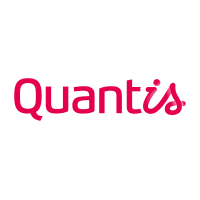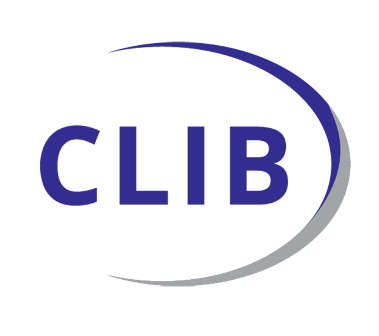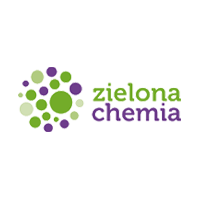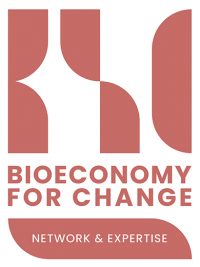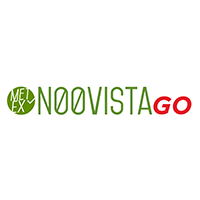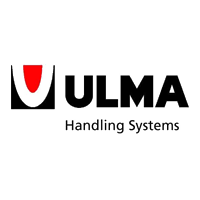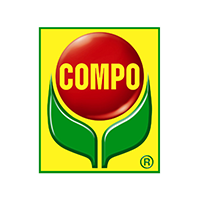The FARMŸNG Consortium comprises 20 partners from 8 countries with strong multidisciplinary competences required for carrying out the work plan and match project objectives.
Ynsect (Coordinator)
Ynsect is a company established in 2011 operating in the fields of environmental biotechnology and feed industry. Ynsect uses insects to bioconvert organic substrates and transforms those insects into premium ingredients for fish and pets. Ynsect success comes from a world leading R&I, cutting edge technologies and know-how in insect mass-rearing and processing, and a talented multidisciplinary team, with skills ranging from physiological entomology to biochemistry, to follow a visionary idea.
The first technology developed by Ynsect can create products of interest for animal feed field, notably fish, pets and poultry as well as organic fertilizers. Since 2016, a Demo plant is running in France (Dole in Bourgogne Franche Comté), allowing to deliver the first customers, proving the scalability of our industrial process. Ynsect has now 90 employees of which 30 people dedicated to R&D and innovation and 35 people dedicated to the Demo plant engineering and operations.
Role in the project: Ynsect is the coordinator of the FARMŸNG project. The first industrial large-scale plant – core topic of the FARMŸNG project- will allow Ynsect to deliver new proteins with outstanding nutritional quality to the key big actors of the fish feed and pet food manufacturing sector.
Chamtor S.A.
For more than a century, ADM (Archer Daniels Midland Company) has transformed crops into products that serve the vital needs of a growing world. Today, we’re one of the world’s largest agricultural processors and food ingredient providers, with approximately 31,000 employees serving customers in more than 170 countries.
With a global value chain that includes approximately 500 crop procurement locations, 270 ingredient manufacturing facilities, 44 innovation centers and the world’s premier crop transportation network, we connect the harvest to the home, making products for food, animal feed, industrial and energy uses. In France, ADM operates a refinery, under our subsidiary brand SIO, for specialty oils and fats in Arras, in northern France, as well as a processing plant in the Champagne Ardenne region, under our subsidiary brand ADM Chamtor, which transforms and processes wheat into starchbased products. ADM Chamtor transforms and processes wheat into starch-based products for use in food, feed and technical applications and provides technical expertise in product formulation. As for food, ADM Chamtor’s wide product range includes glucose syrups and glucose-fructose syrups, vital or hydrolyzed wheat proteins, starch, and wheat germs. These products offer high quality solutions to provide texture, transparency, taste, shelf life extension and nutritional balance. As for feed, as a long-term actor in the animal feed industry, ADM Chamtor provides a range of high-quality materials (glucose syrup, starch, vital or hydrolyzed wheat proteins and wheat solubles) for animal feed. The product characteristics include dispersibility, texture, digestibility, palatability, neutral flavor, visco-elasticity and are sources of carbohydrates or cellulose. Applications are varied such as in: milk substitute for calves and piglets, pet food, aquaculture and also feed for cattle and pigs. ADM Chamtor’s starch-based products (glucose syrup, starch, vital or hydrolyzed proteins and wheat soluble) are used in the production of paper-cardboard, biofuels, cosmetics, building materials, glues and adhesives, compost, to name just a few.
Role in the project: ADM Chamtor supplies raw materials and contributes to establish a new flow of agro by-products materials.
Star Food Holland B.V.
Star Food is an experienced player on the insect-market, when it comes to animal feed. It has the knowledge and means to breed mealworms. Producing Insects on large scale requires different production methods and other standards. In 1985, in an old shed in Voorthuizen, Wim Soetendaal started breeding worms to meet anglers' demand for fish bait. At the time, especially during the summer months, the supply of worms was very low, while demand was very high.
After studying the breeding process of worms and setting up a breeding method, business soon went swimmingly. From the start, he sold worms not just in the Netherlands; his biggest buyers came from Italy and Germany. Soon, foreign wholesalers asked him to supply other food insects. In order to meet that demand, Wim started breeding mealworms in 1987, followed by grasshoppers and crickets in 1989 In thirty years, Star Food has grown from a small one-man business in an old shed where its owner bred worms and other food insects into the still-growing Star Food Holland B.V., offering a full food insect range to retailers, wholesalers and importers from around the world. Thanks to years of experience with breeding and the expertise of its staff, Star Food Holland B.V. can supply high-quality food insects at a competitive price.
Role in the project: Star Food provides the knowledge and means to breed mealworms and to produce insects at large scale as required by FARMŸNG.
Walloon Agricultural Research Center
The Walloon Agricultural Research Centre is a Belgian research institute funded in 1872 that employs today over 450 people among them 120 scientists. This public research institution maintains and develops scientific knowledge, skills and excellence for a sustainable development of the agriculture and the whole agro-food sector. The Department involved in the FARMŸNG project deals in particular with the characterisation of agricultural products used as food, feed or fiber.
Techniques developed for this relate to classical chemistry, NIR spectroscopy, DNA based and microbiological technologies. Knowledge in NIR spectroscopy started in the 1980s. Since then, lots of data bases were built for the calibration of NIR instruments and worldwide networks of instruments were organized to characterize agricultural products in a uniform way. The impressive work of the Food and Feed Quality Unit drives her to international recognition. The second unit of the Department involved in the project is the Authentication and Traceability Unit. By its activities in molecular biology, the Unit is specialized in GMO detection (and is one of the laboratory constituting the national reference laboratory in Belgium) but also in animal species determination and work in close collaboration with the European Reference laboratory for Animal Protein (EURL-AP) team (a part of the team being hosted in the Unit Traceability and Authentication). The Unit therefore has an excellent knowledge of the performance criteria required for the validation of a test at international level and of different regulations. This Unit has also an expertise in dairy microbiology for technological (i.e. dairy fermentation, microfiltration process for milk sanitization, etc.) and regulatory purposes (i.e. draft dossier in analytical domain of feed probiotics evaluation for EU commission). The laboratory is familiar with classical and more modern technologies (DNA based) as well as with rapid methods (flow cytometry) for bacteria identification and enumeration.
Role in the project: CRA-W is involved in the WP6 and, in collaboration with EAF, will evaluate the quality and safety of insect-based products.
Eurofins Analytics France
Eurofins Analytics France is a private testing laboratory belonging to the Eurofins Group, a global network of laboratories serving the pharmaceutical, food, environmental and consumer products industries. Eurofins Analytics France is based in Nantes in western France, where some of its research activities in food analysis are also located.
The laboratory was one of the first laboratories to apply stable isotope techniques to food and beverage authentication, having pioneered the SNIF-NMR method (Site specific Isotope Fractionation studied by NMR). It is involved in both routine testing for national and international food operations and developing new analytical methods for food safety assurance. Routine testing includes authenticity control, detection of chemical contaminants, allergens, GMOs and ensuring compliance with labelling requirements for which the laboratory deploys a range of state-of-the-art techniques carried out under COFRAC accreditation (COFRAC is the French accreditation body). The company tests more than one million samples per year. It respects the standard ISO-17025 (General requirements for the competence of testing and calibration laboratories) and the technical guidelines LAB GTA 21, edited by the COFRAC. Through the Eurofins network of food testing laboratories, Eurofins Analytics France has access to a worldwide clientele and comprehensive distribution facilities.
Eurofins Analytics France has developed a business-oriented strategy for R&D with a focus on providing solutions to market needs. The company has participated in several EU and national projects and has considerable experience in European and international collaboration. Eurofins Analytics France has a large experience in molecular biology for more than 20 years, especially in PCR techniques and species identification services. Since 2013 the company has developed meat, fish and plant species identification services based on Next Generation Sequencing. The laboratory has experience in genomics for data analysis. More specifically Eurofins Analytics France has contacts with many companies in the field of edible-insects for food and feed. It already provides services to them for assuring quality and safety of insect-based products. From its inception Eurofins Analytics France is involved in the fight for preventing food fraud. It provides innovative and cutting-edge analytical services to the food industry helping them assuring integrity along the supply chain. This experience will help Eurofins Analytics France in carrying out the project FARMŸNG tasks.
Role in the project: EAF is involved in the WP6 and, in collaboration with CRA-W, will evaluate the quality and safety of insect-based products.
Quantis Sàrl
Quantis is a leading life cycle assessment (LCA) and life cycle costing (LCC) consultancy specialized in supporting companies to measure, understand and manage the environmental impacts of their products, services and operations. Quantis employs 30 people, amongst which several are internationally renowned experts in the LCA field.
Quantis offers cutting-edge services in environmental footprinting, eco-design, sustainable supply chains and environmental communication. Fuelled by its close ties with the scientific community and its strategic research collaborations, Quantis has a strong track record in applying its expertise to support clients in transforming LCA results into decisions and action plans.
Role in the project: Quantis will assess the life cycle sustainability performance of the developed innovative insect-based proteins by means of environmental LCA, LCC and social LCA, compared to alternative protein sources (baseline) for pet-food and aqua-food applications.
PNO Consultants SAS
PNO Consultants SAS, a wholly owned company of the PNO Group, is Europe’s largest independent public funding and innovation consultancy firm with 30 years of hands-on expertise and more than 500 funding programmes in most EU countries, annually raising approximately 1 Billion Euro for its clients. Created in 1985, PNO is a high-growth knowledge-intensive company, supporting over 2000 clients throughout Europe, annually developing over 250 European consortia. PNO has presence in 7 European countries.
PNO’s “Innovation Management” services delivers high quality support to large sized companies, SMEs, Universities, Research Institutes, Associations and clusters in the full cycle of the innovation process, including analysing, defining and planning innovation processes, building innovation networks, partnerships and projects, and managing projects and driving innovation.
Role in the project: PNO will be WP8 leader, coordinating all partners within the Dissemination, Communication & Exploitation activities as well as the IPR issues.
Skretting Aquaculture Research Centre AS
Skretting Aquaculture Research Centre (ARC) is the global research organization for Skretting with the goal of ensuring that the world’s leading fish and shrimp feed producer maintains its position at the forefront of the rapidly developing aquaculture industry. The research center is based in Stavanger, Norway, and has further research units in Italy, Spain, China and Japan.
Skretting ARC employs an international team of over 100 highly skilled specialists, supported by a substantial annual investment in advanced R&D. We collaborate with over 50 research institutes and private companies across the globe. Our core competencies are nutrition, health, feed production and research methodologies. We perform research for all feed companies within Skretting in Europe, North & South America, Asia and Australia. On a global basis, Skretting produces more than 2.0 million tons of fish and shrimp feed.
Role in the project: Within the FARMŸNG project, Skretting is working to develop new products for fish feed based on the insect-based nutrients.
VIRBAC NUTRITION SAS
Founded in 1968 in Carros close to Nice by veterinarian Pierre-Richard Dick, Virbac is dedicated exclusively to animal health. The company ranks today as the 8th largest animal health company worldwide. Our wide range of vaccines and medicines are used in the prevention and treatment of the main pathologies for both companion and food-producing animals. Accounting over than 4,800 employees, today Virbac is the 8th largest veterinary company worldwide and 6th in Western Europe.
Virbac is present in more than 100 countries offering a comprehensive and practical range of products and services covering the majority of species and pathologies, with over 30 subsidiaries outside France. R&D centres are present on five continents.
Virbac Nutrition is a subsidiary of Virbac. Virbac Nutrition, implemented in France (Gard), produces and commercializes dry pet food products for dogs and cats. Those products are only sold in the veterinary channel. Virbac Nutrition has produced and sold 11 000 Tonnes of dry pet food in 2016 with a turnover of 28 973k€. Since several years, the sales grow continuously. The increase of turn over should accelerate since the launch in 2015 of the new range HPM.
Role in the project: Within the FARMŸNG project, VIRB is the end user of the insect-based nutrients for pet-food application.
Cluster Industrielle Biotechnologie e.V.
CLIB is an international open innovation cluster for bioeconomy and circular economy with a focus on industrial biotechnology. The approximately 100 cluster members are large (multinational) companies, SMEs, universities, academic institutes as well as other stakeholders active in the bioeconomy from Germany, Europe and around the world. Founded in 2007, CLIB has more than 10 years of experience in connecting stakeholders along and across value chains, in helping to set up project consortia, in developing tech transfer strategies, in providing policy advice and in promoting industrial biotechnology as a key driver for a sustainable bio- and circular economy.
Role in the project: In FARMŸNG, CLIB will work in WP8 Exploitation and Dissemination. This involves the drafting of a dissemination strategy with targeted action to maximise the raise the awareness of FARMŸNG by actively including relevant stakeholders and disseminating the potential of the platform to a large community of users. CLIB will undertake dissemination activities targeted to diverse target groups.
Stowarzyszenie Zachodniopomorski Klaster Chemiczny “Zielona Chemia”
West Pomeranian Chemical Cluster “Green Chemistry” in Szczecin is an internationally active research- development and dissemination cluster of enterprises and scientific units from the West Pomeranian Province and other parts of Poland within the framework of extensive value chains around research, development and demonstration projects related to so-called green chemistry, thus leading to greater innovative activity of its members on the Polish and foreign markets.
West Pomeranian Chemical Cluster Association “Green Chemistry” was registered in 2007 as Non-Profit organization. Our daily activities are governed by association statutes and internal management regulations, as well as the prepared and approved Vision and Mission of Cluster until year 2022. The term of office of all association authorities (the General Meeting of Association Members, Association Board, Audit Committee) lasts 4 years. The Association Board consists of 3 people. The Association consists of natural and legal persons, universities, territorial self-government units and business-related institutions. At present, more than 140 companies (small, medium and large companies) are involved from the chemical, packaging, food and energy-recycling industries, which hope to gain market advantage by joining forces (value chain). In addition, there are: EU project design teams and research teams concentrated at 4 universities, we cooperate with 5 business environment institutions as well as four local government units (including the West Pomeranian Voivodship Board). The Cluster operates a team of animators who provide daily contact with cluster members, organizes meetings and mediates new business relationships, and animates in setting up scientific and industrial consortia.
Role in the project: In FARMŸNG, WPCC will work in WP8 Exploitation and Dissemination, in collaboration with the other clusters, CLIB and IAR.
Bioeconomy For Change (B4C)
Bioeconomy For Change is the reference network for the bioeconomy in France, Europe and internationally. Our team of 35 specialists serve more than 500 members, from upstream agricultural activities through to the commercialisation of finished products.
France is truly leading the way in the bioeconomy and is looking to extend its expertise globally. Our network promotes the bioeconomy, supports the projects of our members, and fosters networking and dynamic collaboration. Our ambition? To make France a world leader in biomass valorisation.
Within our network, we work on every aspect of the production and valorisation of bioresources (agriculture, forests, marine resources, byproducts and waste) for the production of food, industrial processes and energy.
Role in the project: In FARMŸNG, B4C will assume jointly with CLIB, WPCC and PNO the WP8 Communication, stakeholder engagement and public dissemination to disseminate and extend the results of the project to a wide audience.
METEX NOOVISTAGO
METEX NOOVISTAGO was founded in 1974 in AMIENS, France. Its activity is the production, promotion, marketing, sale (and all R&D activities) of amino acids for animal feeding such as: L-Lysine HCl, L-Threonine, L-Tryptophan, L-Valine. Thanks to its distribution network, METEX NOOVISTAGO is able to supply continental Europe, Africa, the Middle East and Central Asia with quality products and services which are adapted to its customer requirements performing in the livestock sector.
The production of amino acids is based on fermentation of bacteria and results in the coproduction of biomass and other coproducts. Amino Acids and derived products from the production of AA are to be used in insect nutrition. The plant of METEX NOOVISTAGO produces more than 150 000 T per year of products regularly used in animal nutrition.
Role in the project: In collaboration with Chamtor and MG2MIX, in FARMŸNG project METEX NOOVISTAGO will take part in the WP3 as one of the feedstock suppliers.
MG 2 MIX
MG2MIX is an independent French premix producer, specialized in premix manufacture and advices in animal nutrition (poultry, swine, cattle, horse, pet, aqua, insect, …). The expertise is backed by a team of scientists and nutritionists, qualified livestock research tools and an extensive skills network (universities, research institutes, analysis laboratories, etc.).
Role in the project: The aim of MG2MIX in FARMŸNG project is to provide premix of vitamins and minerals destined to insect feeds in order to optimize the production of this new source of protein and to propose feed formulations for the feeds consumed by insects to promote their growth and reduce sanitary problems.
MIGUEL TORRES, S.A.
Torres is a family owned winery with vineyards in Spain, Chile and California exporting premium quality wine and brandy to over 150 countries. Since it was founded in 1870, Familia Torres has managed to combine tradition and innovation with the aim of leading the premium quality wine and brandy sector, always producing with the utmost respect for the environment. Torres owns 2.272 hectares of vineyards in Spain, Chile and California. Torres has a turnover of 260 million EUR (2017) and employs more than 1.300 people worldwide.
The Torres family’s philosophy of winegrowing begins with respect for the land. In all vineyards and land, Torres completely avoids the use of chemical treatments, replacing them with biological alternatives, following the viticulture traditions of Torres’ ancestors. Torres investment in “green” projects has been accelerated even more with the Torres & Earth program, put in place in 2007 with a 10 million EUR budget for a 10 years period. Torres & Earth is not only a CO2 reduction program, but actually a wider ecological-sustainable program that covers projects like renewable energies, optimization of water use, eco-efficiency in transport – for example using lighter bottles – ground-breaking research projects and vineyard-adaption-measures. Torres has committed itself to reduce CO2 emissions by 30% per bottle by 2020 compared to 2008 levels. On sector level, Torres was one of the initiator’s of WCP (“Wineries for Climate Protection”) that started in 2011 with a symposium in Barcelona, calling for a 20% reduction in CO2 emissions by 2020 and other 5 environmental action points. Since then important progress was made in the process of auditing the wineries and establishing the rules and methods for the homologation. The ecological record of Bodegas Torres is known and valued internationally by for example the Drinks Business Green Award of 2011.
Role in the project: TORRES is the end user of the fertilizer product and will validate the use of the organic fertilizer on vineyards.
Commissariat Energie Atomique et aux Energies Alternatives (CEA)
Genoscope is the French national sequencing that provides expertise in the field on genomics to public and private entities. It is the national leader in building genomic resources to help breeding of organisms of agricultural interest such as wheat, pea, brassica.
Genoscope was founded in 1996 to contribute to the Human genome project and develop genomic programs in France. Genoscope has subsequently turned toward environmental genomics. It is developing methods and projects for the exploitation of biodiversity, in particular with respect to massive DNA sequencing and bioinformatics. Genoscope has been open to the national scientific community through calls for coordinated projects in the context of France Genomique since 2012. Genoscope is thus contributing to sequencing numerous plant species (orange tree, coffee tree, cacao tree, banana, rape, wheat, etc.) and animal species, a crucial stage with regard to progress in the field of agronomics and in enhancing our understanding of evolution. Genoscope is also contributing to the discovery of hitherto unknown microscopic organisms. Some microorganisms are impossible to isolate and culture; microorganism diversity has been poorly elucidated. In order to study the biodiversity of an environment, the Genoscope teams make use of metagenomics. This technique, now feasible thanks to the development of new sequencing technologies and increased bioinformatics data processing capacities, consists in sequencing, at once, the genomes of all the organisms in a sample derived from a given environment. Metagenomics has, for example, been used to study the waste water from a sewage plant (Cloaca Maxima), to study the diversity of the oceans of the world (Mission Tara Oceans) and study the intestinal flora of individual subjects (Gut Microbiome Project). The studies enable reconstitution of the genomes of poorly known organisms, elucidation of the interdependence of those organisms within an ecosystem, determination of the rules for the association of various species in a connected community, and enhanced understanding of biodiversity.
Role in the project: In FARMŸNG project, CEA is in charge to design a large-scale breeding strategy of mealworms in order to ensure genetic diversity in the rearing process.
ULMA Manutencion S. Coop.
ULMA Handling Systems (UHS) develops its activities in Integrated Engineering in Material Handling Systems through an extensive range of integrated logistics solutions targeted at the Distribution sector and Automatic Manufacturing as well as Supply Chain Software solutions. UHS offers an integrated service from design and planning of logistics solutions to post-sales service and reengineering, which is developed in conjunction with the client. Provides all-round logistics systems consisting of design, development, assembly and maintenance of automatic logistics systems.
UHS works in constant professional and technological collaboration with DAIFUKU, the world leader in this sector, to offer tailor-made solutions and ensure an integrated engineering process from the initial project design to the final delivery and maintenance.
UHS has considerable assets: a team of over 250 professionals, cumulative experience and knowhow and collaboration with the world leader in the sector: DAIFUKU.
ULMA Handling Systems forms part of the ULMA Business Group focussed on Agricultural, Construction, Packaging, Polymer Concrete, Forging, Forklift Trucks and Handling Systems. The ULMA Group is based in Oñati, a town with a population of 11,000 located in Guipúzcoa province in the heart of the Basque Country in northern Spain, to the west of the French border.
ULMA Handling Systems is part of Mondragon Corporation as well. The largest business association in the Basque Country and 10th in the ranking of Spanish companies. Mondragon is a world benchmark for cooperation work, over 85,000 people is sharing one business philosophy. Moreover, is a highly diversified group: 255 companies and entities working in 4 areas: finance, industry, distribution and knowledge.
Role in the project: In FARMŸNG, ULMA shares its experience (especially on industrial and management software) to define project specifications taking into account the maximum complexity of a logistic solution.
Clextral
Clextral (Creusot Loire EXtrusion ALimentaire) has been a forerunner in the plastic industry since 1950s and expanded its focus to become a leader in food extrusion, then successfully designed a process for turning plant fibers into paper pulp using a twin-screw machine. Clextral is a €60M turnover company in 2017 with 300 employees, operating in 95 countries.
For a long time, twin-screw extruder manufacturer only, Clextral in recent years has triggered a process of evolution to the business of turnkey manufacturer. Clextral is supplier of turnkey production lines and equipment for food and non-food applications including deep expertise in the heart of the process twin screw extrusion technology.
Role in the project: As an expert that provides turnkey processing lines, in FARMŸNG project Clextral works in WP2 as provider of the extrusion technology.
COMPO France SAS
COMPO France is a part of COMPO Group based in Germany (MUNSTER). COMPO France is an important actor on the garden market in terms of providing to the end user several families of products to protect and feed crops in the garden. The customers of COMPO France are: 1°) specialized channels: garden centers, DIY shops, Cooperatives and 2°) food channels. The range of products which are proposed are plant protection products, fertilizers, soils improvers, potting soils, and biocides products.
Role in the project: In FARMŸNG, COMPO France will develop different formulations to use the insect manure as agronomic additive.
Country: France
